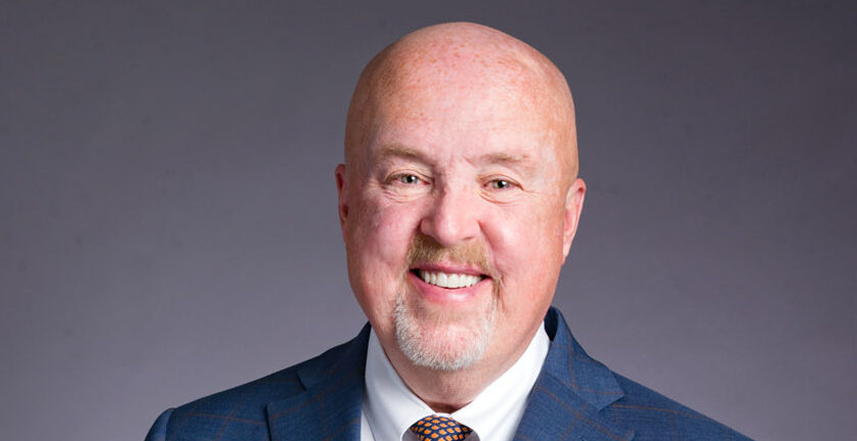Veteran lobbyist and baseball fan signs up to volunteer for COFAR
Marty Corry likes to tick off the features about baseball that have made him such a fan of the game.
In baseball, he points out, there’s no clock, and you never know when the game is going to end. You often see things that you haven’t anticipated—fielding plays or at-bats that can turn the situation around in a heartbeat. There are moments of great exhilaration and, just as surely, moments of great suffering, particularly if you’re a Red Sox fan.
In many ways, Corry says, baseball is a lot like lobbying— the profession he’s practiced for 23 years on Beacon Hill. That may explain why Corry has put into practice a lesson he learned after watching the infamous 1986 Game Six in New York—the game in which the Red Sox…well you know all too well what happened.
“When the ball went through Buckner’s legs, it was as if the sky had opened up and the sun shone upon me,” Corry says over a plate of bacon and eggs at the Capital Coffee Shop across the street from the State House. It’s the morning after a late night House budget session, and Corry is back on the Hill, expansive as ever. His face beams with delight in the metaphor he’s employing. “And God said, this is what these people go through every year, so don’t ever become emotionally involved with them at that level.”
He laughs out loud. He clearly delights in stories and metaphors as ways of getting his point across. And much of it isn’t intended to be taken too seriously. If he’d taken that supposed advice from on high never to get involved emotionally with people in his profession, he never would have agreed to do what he’s done for the past several months—advocating on Beacon Hill on behalf of people with mental retardation. It’s a job he’s agreed to do without pay.
“I look on this as a very small contribution to a group trying to do the right thing for the most helpless individuals,” he says.
Corry actually isn’t a Red Sox fan, he says, because he grew up in Baltimore and is still an Orioles fan. He came to Boston in the mid 1970s to attend Boston College, graduated and then received his law degree from Suffolk University Law School. Along the way, he met and fell in love with a girl from Scituate named Jane Malloy, married her, and then went right into the lobbying profession. He teamed up with Jane’s father, Bill Malloy, who’d been lobbying on behalf of insurance companies, the beer wholesalers, the Massachusetts Medical Society and other interests for the previous 30 years.
Today, Corry heads Corry Associates, which has a wide range of paying clients, including the Massachusetts Nurses Association, the Motion Picture Association, Motorola, and a number of biotechnology and pharmaceutical companies.
COFAR is his only “intentional” pro bono client, he says with a laugh. He got in touch with COFAR President Thomas Frain late last fall at the suggestion of Charles Stefanini, director of governmental affairs for the Massachusetts Nurses Association. “Tom [Frain] and I met for coffee, and I could see that here was a guy with passion. It was infectious. At the end of the conversation, I wanted to do
something to help.”
Corry says he regards himself as just another volunteer for COFAR—but one who happens to be familiar with the often obscure and unforgiving political terrain of Beacon Hill. “A lobbyist is a lot like a Sherpa guide, he says, referring to the mountain climbers from Tibet, famous for their skill in traversing the Himalayas. “They know what the clouds are telling them: ‘camp here, it’s not negotiable.’ You either do what the Sherpa guide tells you or you freeze to death. A good lobbyist,” he continues, “finds the path between Point A and Point B to achieve a goal. But a lobbyist is only as good as the information people give him.”
Corry says he’s fortunate that both Frain and COFAR Executive Director Colleen Lutkevich “both bring knowledge, experience, and a sense of where the bodies are buried that have made it a lot easier for me to connect the dots.” Thus far, Corry has organized two meetings between Frain and Lutkevich and state lawmakers. He says he’s tried to provide assistance to COFAR with strategic planning on legislative and other issues and has tried to identify legislators who might help further legislation of benefit to people with mental retardation. “I’ve been doing some grass roots talking with legislators to get a handle on the system,” he adds. “They certainly are dealing with some tough decisions about how state resources must get allocated.”
Back in Corry’s small suite of offices at the base of Beacon Hill, the baseball theme is evident. Mounted in small glass cases on several shelves of a bookcase are baseballs autographed by the great names of the game, including Ted Williams, Sandy Koufax, Mickey Mantle, Brooks Robinson, Frank Robinson, Ernie Banks, Bob Gibson, and many more. On the bottom shelf, there’s even a ball autographed by none other than Bill Buckner and Mookey Wilson.
In baseball at least, Corry has taken to heart that divine advice not to get too emotionally involved.
Run date: June 2004, The COFAR Voice

